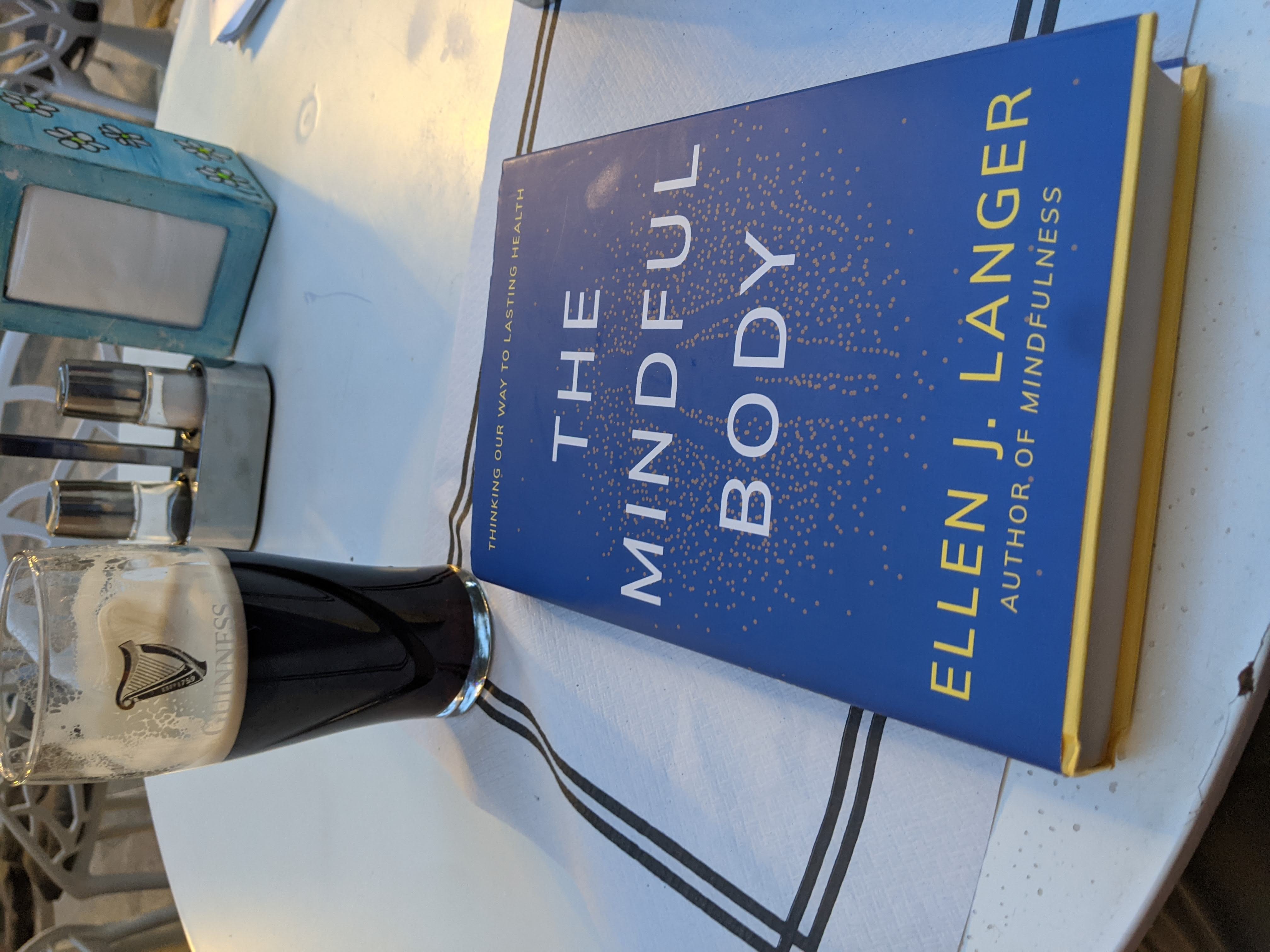The Mindful Body |

|
30 November 2023 - Adetswil
I get a email newsletter from the Greater Good Science Center since I took their online science of happiness course a decade ago, and periodically they send out book recommendations. As a result I found myself reading Ellen J. Langer's The Mindful Body. I try to keep my childlike curiosity about the world alive through practice, and that dovetails well with the concept of mindfulness. Like many popular science books, especially those focused on psychology, Langer takes a polemic approach. In the first chapter she starts off questioning the social construction of rules and goes on to outline the studies that shown diagnosis based on a threshold value can have a negative effect on patient outcome. That is, patients whose tests are just above or just below a threshold value on average have very different outcomes after being told they have or do not have the condition the test measures for. This is but the first example of how a person's mindset can affect their health.
I experienced something similar this year. As part of qualifying for the race up Mt. Vesuvius I had to pass a number of medical tests, including an EKG taken both at rest and exercising. I had to go to a specialist for this test and I was told that the EKG indicated that the left side of my heart might be enlarged and that this might be a result of too much running. They would need to do further tests, but the specialist recommended putting on medication immediately. While I was still cleared to run the race, my mental state accepted that the heart problem was real and serious because both my father and grandfather had heart attacks. Did it affect my ability to run up Vesuvius that led to me missing the time cutoff halfway through? Maybe not. At the cutoff I met a Polish ultramarathoner who was also cut and we shared stories of our races running back down the mountain to the town together. It was a tough race! But after the race I cut way back on my training and only ran one race over the summer that ran up the Tobel where I regularly train. I put back on 10 kilos I didn't need before I realized that I'd been captured by this negative mindset: a bad heart means I can't run. This led to weight gain that is a far worse problem for health than too much running. So I went back to running, do ing 3 half marathons last month, and when I got the follow up ultrasound that actually looked at my heart it wasn't enlarged.
Langer's book continues to weave scientific studies together to show that the mind plays a powerful part in our health, assessing risk, decisions, forgiving, and the power of imagination. I was surprised to learn that just imagining eating can make you feel less hungry. Jewish women starving in Nazi concentration camps got together and discussed recipes and preparation of food they could not have then, much as Viktor Frankl studied the psychology of his fellow jews and their guards. While he wrote a psychology book afterward, some of those women wrote cookbooks.
Also of interest to me as a runner is the mental component of fatigue. As Langer illustrates in numerous studies, if humans are doing a task of fixed length and we know that length then on average fatigue peaks around when we've completed 75% of that task. In some of the races where I've gotten my best times I have imagined that I am running a longer race. Of course, if I run a 5K at my marathon pace it's not going to be a PR, but 10K and above I think my physical limit is just under 5 min/km. And I never feel tired in a marathon at the 21 km mark, but I definitely fatigued at 16 km in that half marathon last month in Málaga.
The placebo effect, that is, taking a sugar pill believing that it is something other medicine that will heal you, is powerful. Langer demonstrates this again, but then flips it on its head. What if the doctor revealed to the patient that their belief that they would get better healed them rather a medicine? Could patients harness that ability in the future? Unfortunately this revelation would probably undermine trust in the doctor-patient relationship, even though intelligent people already know that their doctor might be prescribing them placebos.
As far as our brain is concerned, Langer shows that rejection is equivalent to physical pain. Having been rejected by my ex-wife and then through her parental alienation rejected by my kids, I can definitively say that this rejection has been the most painful experience of my life. But all the little rejections that come with looking for a job can add up as well. Pretending this pain doesn't exist can be a recipe for being overwhelmed by it.
Langer closes her book on a positive note. Everyone can learn to practice attention to variability in ourselves and the people around us. Moreover, this increased mindfulness is also demonstrably contagious. Living, as we do, in the age of memetic warfare, it's quite comforting to learn.

